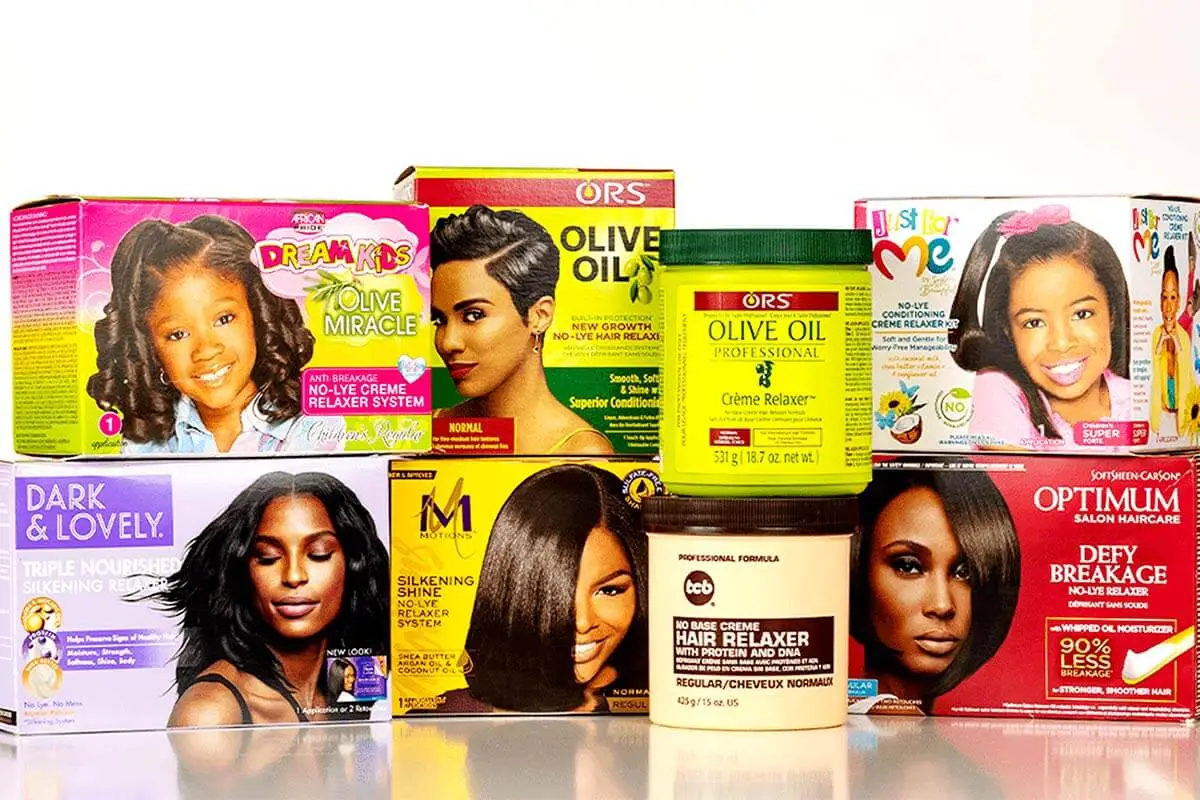For Fiona and her sisters, visiting the hair salon was more than just a routine. Their destination was a small but vibrant salon tucked away on the corner of the busy street, known for its friendly atmosphere and the expertise of the stylists. Inside, the air smelt of aromatic oils and hair relaxers.
Relaxing one’s hair has long been a part of many black women’s beauty rituals. For decades, it has been the preferred method for managing the natural hard texture of African hair, which is often tightly coiled or coarse. Fiona, like many others, had been relaxing her hair since she was a teenager. It was a process that softened her thick, curly hair, making it straighter, more manageable, and versatile for different styles. Every three months, she and her sisters would make the journey to this same salon, eagerly awaiting the transformation that would follow.
For many black women, the act of relaxing their hair is often referred to as “disvirgining”—a colloquial term used to describe the process of chemically straightening natural hair for the first time. However, in Fiona’s case, it wasn’t about “disvirgining” her hair but maintaining the style and texture she had grown accustomed to, which is packed gel. Relaxing wasn’t merely for hygiene or convenience; it was an aesthetic choice. It allowed her to style her hair in intricate ways like sleek ponytails or sophisticated bobs. While the process involved harsh chemicals that regularly burn, but, the final look was worth it.
Hair relaxers are chemical creams or lotions applied to natural hair to straighten it by loosening tight curls. For decades, women have embraced this method to achieve manageable, longer-looking hair that is easier to style. smoother appearance.
A study by the National Center for Biotechnology Information (NCBI) confirms that nearly two out of every three Black women use chemical-based relaxers. These chemicals, such as sodium hydroxide (in lye-based relaxers) or calcium hydroxide and guanidine carbonate (in no-lye relaxers), alter the hair shaft by breaking down protein bonds, transforming curly hair into a straighter form. This process reduces the time and effort needed to style hair into various shapes, such as bobs, ponytails, or updos.
Recent research has uncovered a concerning link between hair relaxers and uterine fibroids. This connection is believed to stem from harmful chemicals in relaxers that may penetrate the scalp and disrupt hormonal balance, potentially increasing the risk of fibroid development.
The Black Women’s Health Study, which examined 23,580 premenopausal women, found that those who used hair relaxers were 17% more likely to develop fibroids compared to those who did not. This suggests a possible association between hair relaxer use and an increased risk of fibroids.
Data from Euromonitor International reveals that Nigeria is ranked 5th in Africa for hair relaxer usage, with 3.4% of women using them, compared to Tunisia’s 10.7%, the highest in Africa.
Recent research has uncovered a concerning link between hair relaxers and uterine fibroids. This connection is believed to stem from harmful chemicals in relaxers that may penetrate the scalp and disrupt hormonal balance, potentially increasing the risk of fibroid development.
What are Fibroids?
Uterine fibroids are non-cancerous tumours that grow in and on the uterus and are said to be the most common non-cancerous tumours among people of childbearing age.
While some may not have any symptoms, other women suffer gross pain like heavy menstrual bleeding, back pain, pain during sex, and constant urination. Regarding size, small fibroids require less medical treatment, but larger fibroids, when detected, are usually treated with medications or surgical operations.
Johns Hopkins Medicine reports that 20–70% of women will develop fibroids during their reproductive years. In more than 99% of cases, fibroids are benign and do not increase the risk of uterine cancer. Although the exact cause of fibroids remains unknown, they are thought to develop from abnormal muscle cells in the uterus that replicate in response to oestrogen, which promotes tumour growth.
Disturbingly, Black women are disproportionately affected by fibroids, experiencing higher rates of development, earlier diagnosis, and greater treatment needs compared to other racial groups. The reasons behind this disparity are still unclear.
The Black Women’s Health Study, which examined 23,580 premenopausal women, found that those who used hair relaxers were 17% more likely to develop fibroids compared to those who did not. This suggests a possible association between hair relaxer use and an increased risk of fibroids.
Qudus Lawal, a gynaecologist, has pointed out that hair relaxers contain chemicals that may be linked to reproductive health issues and cancerous growths, particularly endometrial cancer, which affects the womb.
Lawal acknowledges that while fibroids cannot be solely attributed to hair relaxers, research indicates that these products could increase the risk of developing tumors. He advises moderation in haircare practices, noting that lifestyle changes alone may not prevent fibroids, which are often influenced by genetic factors.
Despite these findings, many women, including Fiona, feel they cannot give up using hair relaxers. However, there is a growing movement among Black women, even in Nigeria, to embrace their natural hair and reconnect with their roots.
In light of these concerns, young Black women like Fiona face the challenging decision of balancing their beauty routines with their reproductive health.
For Fiona and her sisters, visiting the vibrant local hair salon was a cherished routine that extended beyond mere aesthetics. They, like many Black women, engaged in the longstanding beauty ritual of relaxing their hair, a process that chemically straightens tightly coiled or coarse hair, making it easier to manage and style. This method, involving harsh chemicals like sodium hydroxide or calcium hydroxide, was embraced by nearly two out of three Black women for its ability to transform curly hair into a smoother, more versatile form.
However, recent studies have uncovered concerning links between the use of hair relaxers and the development of uterine fibroids, non-cancerous tumors that affect a significant percentage of women during their reproductive years. The chemicals in hair relaxers are believed to penetrate the scalp, potentially disrupting hormonal balance and increasing the risk of fibroid formation. Research has shown that Black women are disproportionately affected by fibroids, with those using hair relaxers being 17% more likely to develop these tumors.
Despite the potential health risks, the cultural and aesthetic significance of hair relaxing remains strong. Many women, including Fiona, struggle with the decision to balance their beauty practices against their reproductive health. This growing awareness has led to a movement among some Black women to embrace their natural hair, highlighting the complex interplay between cultural identity and health considerations.






